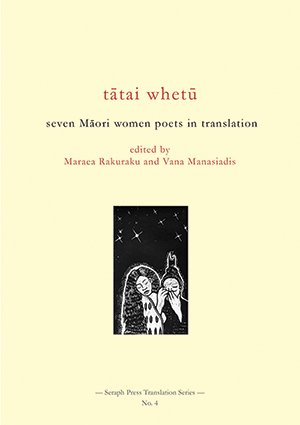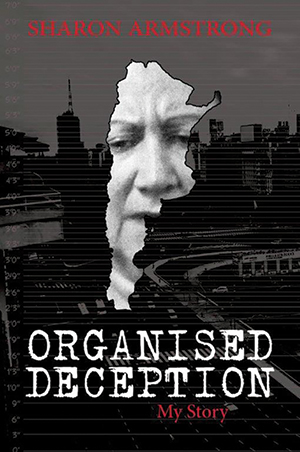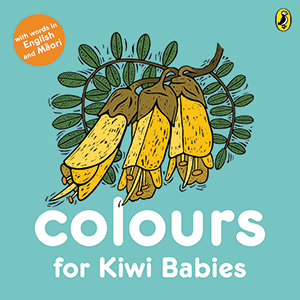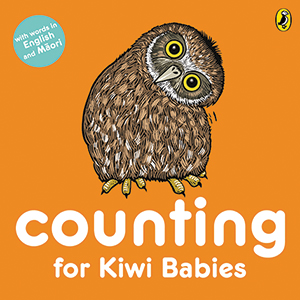Reviews Books
Jul 1, 2018

Tātai Whetū: Seven Māori Women Poets in Translation
Edited by Maraea Rakuraku and Vana Manasiadis
Seraph Press 2018
RRP: $20.00
Review nā Arielle Monk
Tātai Whetū: Seven Māori Women Poets in Translation is a bilingual collection of poetry, and a literary delicacy not to be missed.
 Brought to printed life by boutique Wellington publishing house Seraph Press, Tātai Whetū is the fourth offering in a Translation Series. The featured poets are Anahera Gildea, Michelle Ngamoki, Tru Paraha, Kiri Piahana-Wong, Maraea Rakuraku, Dayle Takitimu, and Alice Te Punga Somerville.
Brought to printed life by boutique Wellington publishing house Seraph Press, Tātai Whetū is the fourth offering in a Translation Series. The featured poets are Anahera Gildea, Michelle Ngamoki, Tru Paraha, Kiri Piahana-Wong, Maraea Rakuraku, Dayle Takitimu, and Alice Te Punga Somerville.
Interestingly, the poems were originally written in reo Pākeha, then translated into reo Māori for the collection. In such a richly populated book, it’s hardly surprising that even the translator’s notes provide a kind of kai for the hungry mind. Notes discuss the inability to ever truly translate from one language to another; a subtle injection of insight into expression through reo Māori and the contextuality often relied on in Māori texts.
I find contemporary poetry (particularly that written by women and furthermore, women of colour) provides me with a snapshot. My mind will conjure a visual work of art in response to the words on the page – as vivid and visceral as those kupu allow.
And in reading Tātai Whetū, my consciousness was filled with the different styles and voices of each writer – seven versions of light and dark, colour, and detail are brought to life in these pages. Some of the themes threaded throughout include the echoing effects of colonisation, connection to Papatūānuku, kotahitanga, and mana wāhine. Of course, these themes which I list are my own interpretations of the poetry – they may not be as the poet intended, but I believe literature is never received in the silo of a writer’s intentions. A reader’s experiences will always colour the text – and I am sure many will find their own memories being spoken to within these poems.
Although difficult to pick favourites from such beautifully accomplished pages, standouts for me include Anahera Gildea’s In Search of Mana Wahine, Tru Paraha’s Darknyss, and editor Maraea Rakuraku’s When does it start?
This beautifully printed and hand-bound book is a treasure trove, a slim yet infinitely deep invitation to the reader.
 Arielle Kauaeroa Monk (Tainui, Ngāti Tūwharetoa, Ngāti Raukawa, Muaūpoko, Te Āti Haunui a Pāpārangi, Ngā Rauru) is the editor for Te Pānui Rūnaka, the Ngāi Tahu monthly newsletter. She moved to Ōtautahi four years ago to work as a journalist and thus began a relationship with the local iwi and tāngata. Arielle currently works as a freelance writer and communication consultant and loves to promote the Māori narrative and perspective in journalism, fiction and non-fiction writing.
Arielle Kauaeroa Monk (Tainui, Ngāti Tūwharetoa, Ngāti Raukawa, Muaūpoko, Te Āti Haunui a Pāpārangi, Ngā Rauru) is the editor for Te Pānui Rūnaka, the Ngāi Tahu monthly newsletter. She moved to Ōtautahi four years ago to work as a journalist and thus began a relationship with the local iwi and tāngata. Arielle currently works as a freelance writer and communication consultant and loves to promote the Māori narrative and perspective in journalism, fiction and non-fiction writing.
Organised Deception
Nā Sharon Armstrong
Self-published 2018
RRP: $35.00
Review nā Helen Leahy
 One would think that the monotony of prison life would be an unlikely habitat for hope to grow. We observe Sharon Armstrong counting the minutes of phone calls, the cockroaches infesting the cells, and the handles on brown paper bags. Hours are punctuated by gossip, washing floors, and waiting for dinner to arrive. Only court appearances seem to break the routine.
One would think that the monotony of prison life would be an unlikely habitat for hope to grow. We observe Sharon Armstrong counting the minutes of phone calls, the cockroaches infesting the cells, and the handles on brown paper bags. Hours are punctuated by gossip, washing floors, and waiting for dinner to arrive. Only court appearances seem to break the routine.
And yet as every day becomes one day closer on the makeshift calendar on her prison wall, we come to appreciate that hope, faith, and whānau are a compelling reason for Sharon’s unwavering optimism.
Organised Deception paints a credible context from which to understand the craft of the “romance scammer”, and its traumatic consequences for the unsuspecting victim. Alongside the journal of life inside the walls of the Argentinian prison Unidad 31, we read the viewpoints of specialists in cyber crime; psychological manipulation, digital forensics, and grooming drug mules.
Organised Deception is, however, much more than a mere chronicle of prison days. It is a cautionary tale to warn off potential victims from being preyed on by sophisticated networks of scammers, who feed on vulnerability. The journey to hell is documented not just by Sharon and her family members, but also those who can analyse the psychological techniques used to entrap her into the clutches of the supposed “love of her life”.
Ultimately, however, the greatest aspect of Organised Deception is that it is a love story of extraordinary contrasts. There is no doubt that Sharon fell in love with a “person” (or group of people) who captured her in a sticky web of false identity, fraud, debt, drugs, and finally, incarceration. One of the most tragic aspects is reading Sharon’s letter of loss and humiliation as she wakes to the realisation that she had been duped by someone she wanted to have complete trust in.
The most potent message of Organised Deception is that the only power capable of unravelling the psychological knot into which Sharon’s life becomes twisted is Sharon herself. Her whānau never lose hope. They inspire her to stay strong, to keep resolutely focused on coming home, and to never, ever to lose sight of the value she represents as a grandmother, a mother, a sister, and an aunty.
Sharon’s story ends as a radiant triumph of hope over harm, and faith over fragility. She shares heartfelt words of caution to anyone at risk of becoming an unsuspecting victim of a calculating predator.
“Please remember it is not a crime to fall in love – it is where that love may lead you that is the concern”. In her case, love wins out. She is resolute in her determination that the crime for which she is sentenced will not define her future.
Both a documentary of life beyond bars and a self-help guide to well-being, Organised Deception shows that even in the direst of circumstances, whānau can be the key to survival. Faith, hope, and belief in the power of whānau is what makes Sharon’s story so powerful.
 Helen Leahy is the Pouārahi for Te Pūtahitanga o Te Waipounamu, the Whānau Ora Commissioning Agency for the South Island. Helen is the author of Crossing the Floor, the story of Tariana Turia (2015).
Helen Leahy is the Pouārahi for Te Pūtahitanga o Te Waipounamu, the Whānau Ora Commissioning Agency for the South Island. Helen is the author of Crossing the Floor, the story of Tariana Turia (2015).
Colours for Kiwi Babies and Counting for Kiwi Babies
Nā Fraser Williamson and Matthew Williamson
Picture Puffin 2017
RRP: $12.99
Review nā Nikki-Leigh Condon
 As a mum to three kids under the age of five – Nixon (four), Beau (two), and Violet (six months) – I am always on the lookout for books they’re all going to appreciate. These super-cute books definitely fit the bill.
As a mum to three kids under the age of five – Nixon (four), Beau (two), and Violet (six months) – I am always on the lookout for books they’re all going to appreciate. These super-cute books definitely fit the bill.
I really like the durability of these books. The heavy card will make it difficult for Beau to rip or chew on them – Nixon has been left very upset on a couple of occasions when his younger brother has been a little too rough with shared books.
My kids are big animal fans so I know that they’ll love the pictures, and it’s very cool to see our native flora and fauna showcased. I immediately noticed the unique, nuanced colour palette of both books as well – most kids’ books feature a lot of primary colours, so it’s great to see something a little bit different.
 Overall, these books are a wonderful addition to our library, and an easy way to include some basic te reo Māori in our daily lives.
Overall, these books are a wonderful addition to our library, and an easy way to include some basic te reo Māori in our daily lives.
 Nikki-Leigh Condon is the proud mother to Nixon (four), Beau (two) and Violet (six months). They live in Ōtautahi but maintain a strong connection to Te Tai Poutini and Te Rūnanga o Makaawhio.
Nikki-Leigh Condon is the proud mother to Nixon (four), Beau (two) and Violet (six months). They live in Ōtautahi but maintain a strong connection to Te Tai Poutini and Te Rūnanga o Makaawhio.
Opinions expressed in REVIEWS are those of the writers and are not necessarily endorsed by Te Rūnanga o Ngāi Tahu.